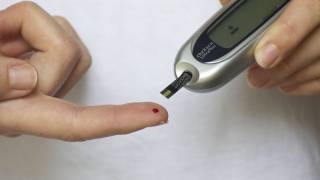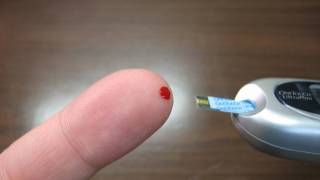Rotavirus Vaccination May Limit Type 1 Diabetes in Children

According to a new study, the number of children diagnosed with type 1 diabetes decreased after the introduction of rotavirus vaccine into the standard vaccination schedule.
This study from the University of Melbourne compared the rates of diabetes in the 8 years before and after the introduction of the rotavirus vaccine in 2007.
They found a 14 percent drop in type 1 diabetes in children age 0 to 4.
But, there was no change in diabetes reported by children 5 to 14 years old.
This is important news since researchers continue to search for a vaccine to prevent type 1 diabetes, says the US Centers for Disease Control and Prevention (CDC).
“Here we find yet another potential benefit of providing recommended vaccines to children. We know that the rotavirus vaccine is safe and reduces the risk of serious illness and even death in children," said Chris Felton, PharmD, Clinical Pharmacist MTM and Immunization Specialist at Brookshire Grocery Company.
While not conclusively linking the rotavirus vaccine with protection against type 1 diabetes, this new study builds on earlier research suggesting natural rotavirus infection may be a risk factor for type 1 diabetes.
Dr. Kirsten Perrett, from the Murdoch Children's Research Institute, said in a related press release.
"The significant decrease in type 1 diabetes that we detected in young children after 2007 was not seen in older children aged 5-14. This suggests the young children could have been exposed to a protective factor that didn't impact older children."
Additionally, Professor Len Harrison from the Walter and Eliza Hall Institute, who is the study senior author, said the discovery followed on from earlier research implicating rotavirus infection in the development of type 1 diabetes.
"While not conclusive, our latest study suggests that preventing rotavirus infection in Australian infants by vaccination may also reduce their risk of type 1 diabetes.”
"At this stage, we don't yet know whether the reduction in type 1 diabetes is a permanent effect or transient, and it may only be relevant to Australian children," Professor Harrison said.
Type 1 diabetes is a serious, lifelong autoimmune condition, in which the body's immune system destroys cells in the pancreas that produce insulin, a hormone that controls the level of glucose in the blood, says the CDC.
Without insulin, blood sugar can’t get into cells and builds up in the bloodstream. High blood sugar is damaging to the body and causes many of the symptoms and complications of diabetes.
Previously, on August 11th, 2018, a separate clinical study reported that infant diarrhea deaths were decreased by 34 percent when a rotavirus vaccination was administered.
The findings, published in The Lancet Global Health, determined the monovalent rotavirus vaccine's impact on infant diarrhea deaths on a large population-based birth cohort of 48,672 infants in Malawi, Africa.
Rotavirus is a contagious virus that can cause inflammation of the stomach and intestines. Infants and young children can be protected against rotavirus disease through vaccination.
In the USA, there are 2 oral, live, attenuated rotavirus vaccines available:
Both vaccines are given orally, not by a shot, 6 weeks after birth, says the CDC.
The rotavirus vaccine cost varies depending on your insurance and which state you live.
The CDC Vaccine Price List provides the private sector vaccine prices for general information.
Vaccine discounts can be found here.
Vaccines, like any medicine, can have side effects, says the CDC. You are encouraged to report negative side effects of vaccines to the FDA or CDC.
The research was supported by the National Health and Medical Research Council (ECF APP1054394), a Melbourne Children's Clinician-Scientist Fellowship, a Murdoch Children's Research Institute grant, the Colin North Diabetes Fund and the Victorian Government.
Dr. Perrett and Professor Harrison hold honorary positions at the University of Melbourne.
Our Trust Standards: Medical Advisory Committee
















